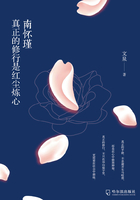In this, they resemble the theologians, who likewise establish two kinds of religion. Every religion which is not theirs is an invention of men, while their own is an emanation from God. When the economists say that present-day relations -- the relations of bourgeois production -- are natural, they imply that these are the relations in which wealth is created and productive forces developed in conformity with the laws of nature. These relations therefore are themselves natural laws independent of the influence of time. They are eternal laws which must always govern society. Thus, there has been history, but there is no longer any. There has been history, since there were the institutions of feudalism, and in these institutions of feudalism we find quite different relations of production from those of bourgeois society, which the economists try to pass off as natural and as such, eternal.
Feudalism also had its proletariat -- serfdom, which continued all the germs of the bourgeoisie. Feudal production also had two antagonistic elements which are likewise designated by the name of the good side and the bad side of feudalism, irrespective of the fact that it is always the bad side that in the end triumphs over the good side. It is the bad side that produces the movement which makes history, by providing a struggle. If, during the epoch of the domination of feudalism, the economists, enthusiastic over the knightly virtues, the beautiful harmony between rights and duties, the patriarchal life of the towns, the prosperous condition of domestic industry in the countryside, the development of industry organized into corporations, guilds and fraternities, in short, everything that constitutes the good side of feudalism, had set themselves the problem of eliminating everything that cast a shadow on the picture -- serfdom, privileges, anarchy -- what would have happened? All the elements which called forth the struggle would have been destroyed, and the development of the bourgeoisie nipped in the bud. One would have set oneself the absurd problem of eliminating history.
After the triumph of the bourgeoisie, there was no longer any question of the good or the bad side of feudalisM. The bourgeoisie took possession of the productive forces it had developed under feudalism. All the old economic forms, the corresponding civil relations, the political state which was the official expression of the old civil society, were smashed.
Thus, feudal production, to be judged properly, must be considered as a mode of production founded on antagonisM. It must be shown how wealth was produced within this antagonism, how the productive forces were developed at the same time as class antagonisms, how one of the classes, the bad side, the drawback of society, went on growing until the material conditions for its emancipation had attained full maturity. Is not this as good as saying that the mode of production, the relations in which productive forces are developed, are anything but eternal laws, but that they correspond to a definite development of men and of their productive forces, and that a change in men's productive forces necessarily brings about a change in their relations of production? As the main thing is not to be deprived of the fruits of civilization, of the acquired productive forces, the traditional forms in which they were produced must be smashed. From this moment, the revolutionary class becomes conservative.
The bourgeoisie begins with a proletariat which is itself a relic of the proletariat [Marx wrote here "working class" in the copy he gave N. Utina] of feudal times. In the course of its historical development, the bourgeoisie necessarily develops its antagonistic character, which at first is more or less disguised, existing only in a latent state. As the bourgeoisie develops, there develops in its bosom a new proletariat, a modern proletariat; there develops a struggle between the proletarian class and the bourgeoisie class, a struggle which, before being felt, perceived, appreciated, understood, avowed, and proclaimed aloud by both sides, expresses itself, to start with, merely in partial and momentary conflicts, in subversive acts. On the other hand, if all the members of the modern bourgeoisie have the same interests inasmuch as they form a class as against another class, they have opposite, antagonistic interests inasmuch as they stand face-to-face with one another. This opposition of interests results from the economic conditions of their bourgeois life. From day to day it has becomes clearer that the production relations in which the bourgeoisie moves have not a simple, uniform character, but a dual character; that in the selfsame relations in which wealth is produced, poverty is also produced; that in the selfsame relations in which there is a development of the productive forces, there is also a force producing repression; that these relations produce bourgeois wealth -- i.e., the wealth of the bourgeois class -- only by continually annihilating the wealth of the individual members of this class and by producing an ever-growing proletariat.
The more the antagonistic character comes to light, the more the economists, the scientific representatives of bourgeois production, find themselves in conflict with their own theory; and different schools arise.















